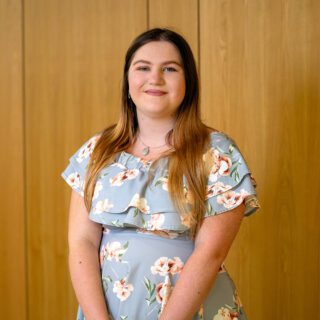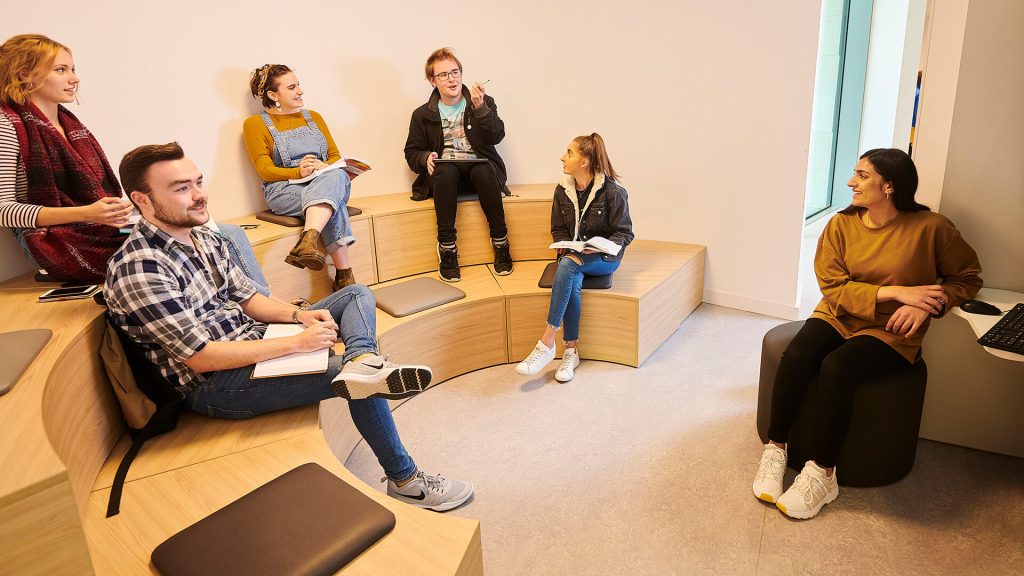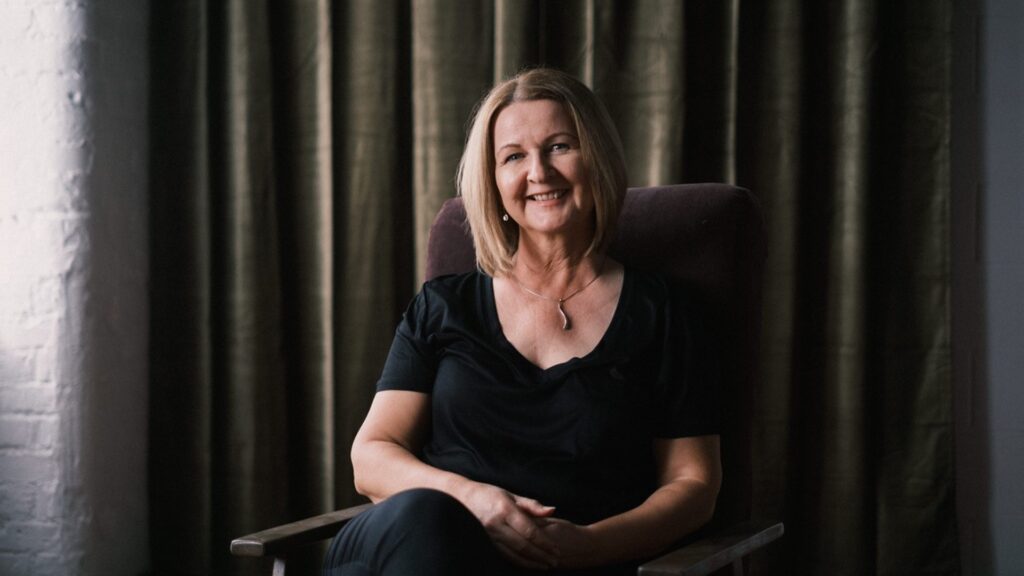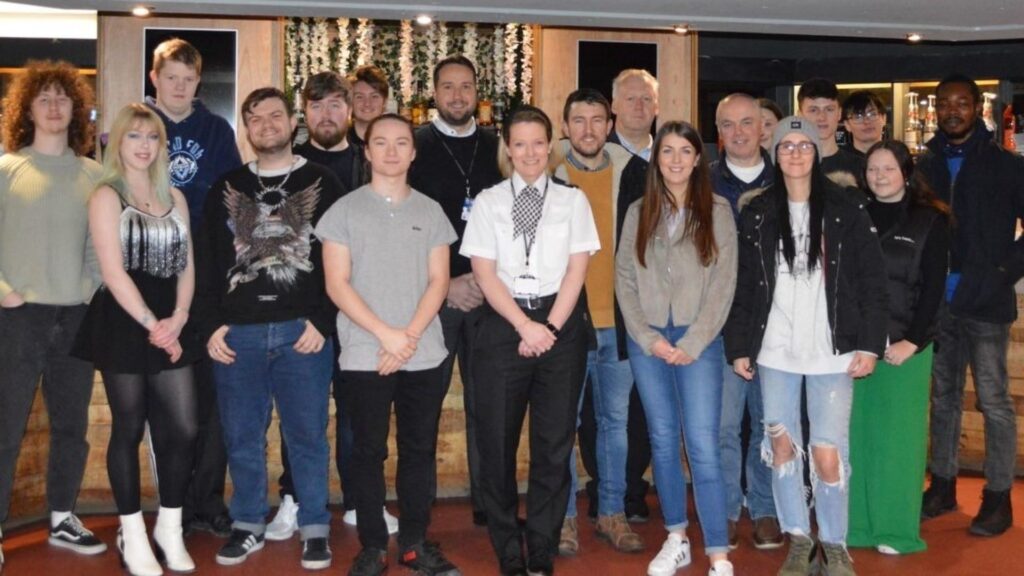Creative Writing and English Literature BA (Hons)
UCAS code: QW38
We’re 5th in the UK for Creative Writing, and 8th in the UK for English (The Guardian University Guide 2024).
Combine your passions for reading and writing great literature with our joint programme. Dive into genres, topics and periods, strengthen your mastery of literature, then transform your own writing with your new understanding as you tap into your creative potential.
Overview
| Course length: | 3 years full-time 6 years part-time |
|---|---|
| Start dates: | September 2024 September 2025 |
| Location: | Edge Hill University |
| Example offers: | BBC-BBB (A Level) or DMM (BTEC) View full entry criteria |
| Subject(s): | Creative WritingEnglish |
| Faculty: | Arts and Sciences |
| Department: | English and Creative Arts |
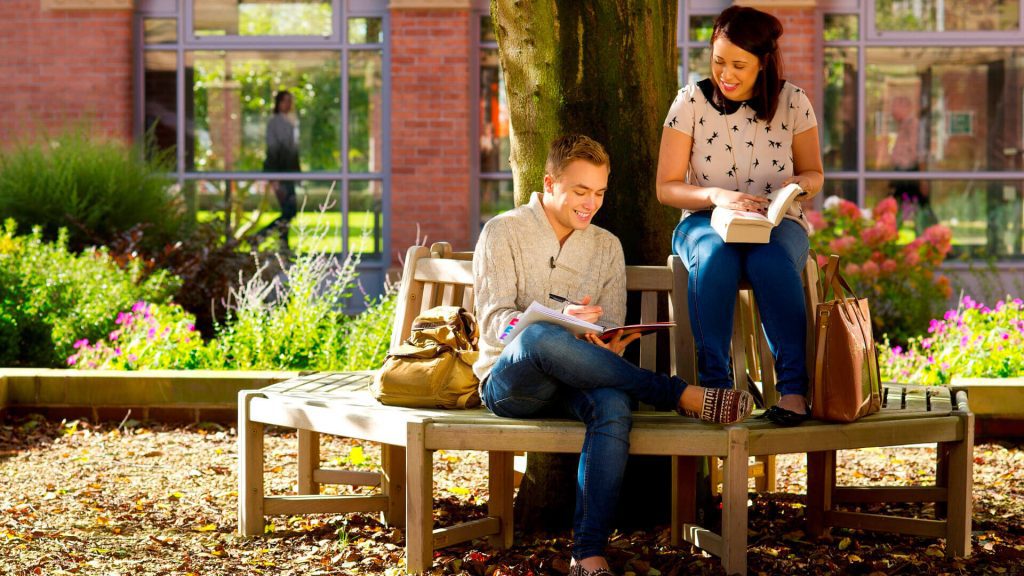
Be inspired. Grasp deeper meanings. Push your creative boundaries. Experiment with poetry, fiction and writing for the stage, screen and radio on our BA (Hons) Creative Writing and English Literature.
Immerse yourself in classic and contemporary works of all kinds at Edge Hill. Through them, you’ll explore key theories and analytical approaches to literature. Use these ideas to develop your understanding of a writer’s impact on society as you uncover what drives and inspires them.
Live the writer’s life. You’ll discover how to read as a writer and develop your own writing philosophy and poetics. Studying this degree at Edge Hill will educate and inspire. We want to empower you to reach for the skies in your own creative writing.
Course features
-
International students can apply
-
Learn a language option available
-
Sandwich year option available
-
Studying abroad option available
What you'll study
In Year 1, you begin your journey to learn the art of reading as a writer. You will explore methodologies, literary criticism and theories across historical and contemporary fiction. You will create poetry and short fiction adding layers of meaning using your new skills. This packed year also sees you grapple with a radio play and the basics of scriptwriting to open new horizons.
In Year 2 the emphasis is on developing a professional approach to your writing. Write contemporary poetry, short fiction and a one-act play, then analyse and edit your work to make it better. The English literature syllabus becomes more flexible. Choose from modules centred around staff interests and research specialisms. Explore Renaissance drama, Romanticism, Restoration-era poetry and prose, or children’s literature.
Creative writing allows you to hone your craft in Year 3. You’ll have opportunities to specialise in your area of interest, with optional modules throughout offering the chance to experiment with your work. For example, you could look at screenwriting, experimental writing or or work towards post-graduate study with our Writer at Work module. Or fine-tune the skills learned in Year 1 and 2 further by exploring poetry and fiction. In English Literature, further optional modules enable you to delve into Victorian literature, the Modernist movement and contemporary authors.
Where your course includes optional modules, these are to provide an element of choice within the course curriculum. The availability of optional modules may vary from year to year and will be subject to minimum student numbers being achieved. This means that the availability of specific optional modules cannot be guaranteed. Optional module selection may also be affected by timetabling requirements. Some restrictions on optional module choice or combinations of optional modules may apply.
How you'll study
Class teaching and learning for Creative Writing modules is centred on the writer’s workshop, where there is a strong emphasis on participation and the creative community.
You will learn the habits of a professional writer, including keeping a writer’s journal, and engage in research and observation, re-drafting and editing, and presenting work to a high standard. Self and peer appraisal are important, as are paired and small group work. All modules are underpinned by a sense of an audience – ranging from a student’s seminar group through electronic and paper publication to performance.
Teaching and learning for English Literature modules includes lectures and seminars, workshops, group activities, independent research and our online Virtual Learning Environment (VLE). As well as module and seminar tutors, personal tutors and year tutors will support you through your studies.
The University hosts the annual Edge Hill Short Story Prize and has recently set up the Edge Hill University Press, which offers students the opportunity of internships working on the editorial team.
How you'll be assessed
Creative Writing modules are assessed by coursework, which includes creative practice, critical practice, essays and reflection on the whole process.
Assessment of English Literature modules involves a mixture of coursework and examinations with emphasis placed on work produced in your own time or formally presented in class. Typically, you can expect to be assessed on essays, short analyses, reports and close readings, oral presentations and group work.
Who will be teaching you
You’ll be taught by tutors who are practising, professional writers. They include widely produced and published short-story writers, poets, dramatists and games writers. The programme team are also practising researchers and scholars, publishing work in a variety of academic and literary journals. This means that you will be taught by people who know how to succeed in the creative industries as well as academia.
There is also a dedicated and approachable team of English Literature tutors who are active in research in all taught subject areas, publishing books and articles on a regular basis. Several have been successful in winning national research awards from bodies such as the British Academy, the Arts and Humanities Research Council and The Leverhulme Trust.
As a Creative Writing student at Edge Hill University, you will have the opportunity to attend workshops and readings with a variety of guest writers at the Arts Centre. Close links have also been established with Liverpool’s Everyman Theatre as well as other poetry venues across Merseyside.
Entry criteria
Entry requirements
Typical offer 112-120 UCAS Tariff points. No specific subjects are required.
Example offers
| Qualification | Requirement |
|---|---|
| A Level | BBC-BBB. |
| BTEC Extended Diploma (or combination of BTEC QCF qualifications) | Distinction, Merit, Merit (DMM). |
| T Level | Overall grade of Merit. |
| International Baccalaureate (IB) | We are happy to accept IB qualifications which achieve the required number of UCAS Tariff points. Subject-specific requirements at Higher Level (HL) Grade 5 may apply. |
| Access to Higher Education Diploma | 45 credits at Level 3, for example 15 credits at Distinction and 30 credits at Merit or 24 credits at Distinction and 21 credits at Merit. The required total can be attained from various credit combinations. |
Please note, the above examples may differ from actual offers made. A combination of A Level and BTEC awards may also be accepted.
If you have a minimum of two A Levels (or equivalent), there is no maximum number of qualifications that we will accept UCAS points from. This includes additional qualifications such as Extended Project Qualification (EPQ), AS Levels that haven't been continued to A Level, and General Studies AS or A Level awards.
English language requirements
International students require IELTS 6.0, with a score no lower than 5.5 in each individual component, or an equivalent English language qualification.
If your current level of English is half a band, one band, or one-and-a-half bands lower, either overall or in one or two elements, you may want to consider our Pre-Sessional English course.
How to apply
Apply full-time
Read our guide to applying through UCAS to find out more about the application process.
International
Please see our international student pages for further information about how to apply as a prospective international student.
Part-time applications require a direct application to Edge Hill. Please select the year of entry that you wish to apply for.
Should you accept an offer of a place to study with us and formally enrol as a student, you will be subject to the provisions of the regulations, rules, codes, conditions and policies which apply to our students. These are available at www.edgehill.ac.uk/studentterms.
Call our Clearing helpline on 0800 028 6677, Monday to Friday from 9am - 5pm or complete our Clearing Application Form and get the guidance you need. Want to know more about Clearing? view our Complete Guide to Clearing 2024.
Apply through Clearing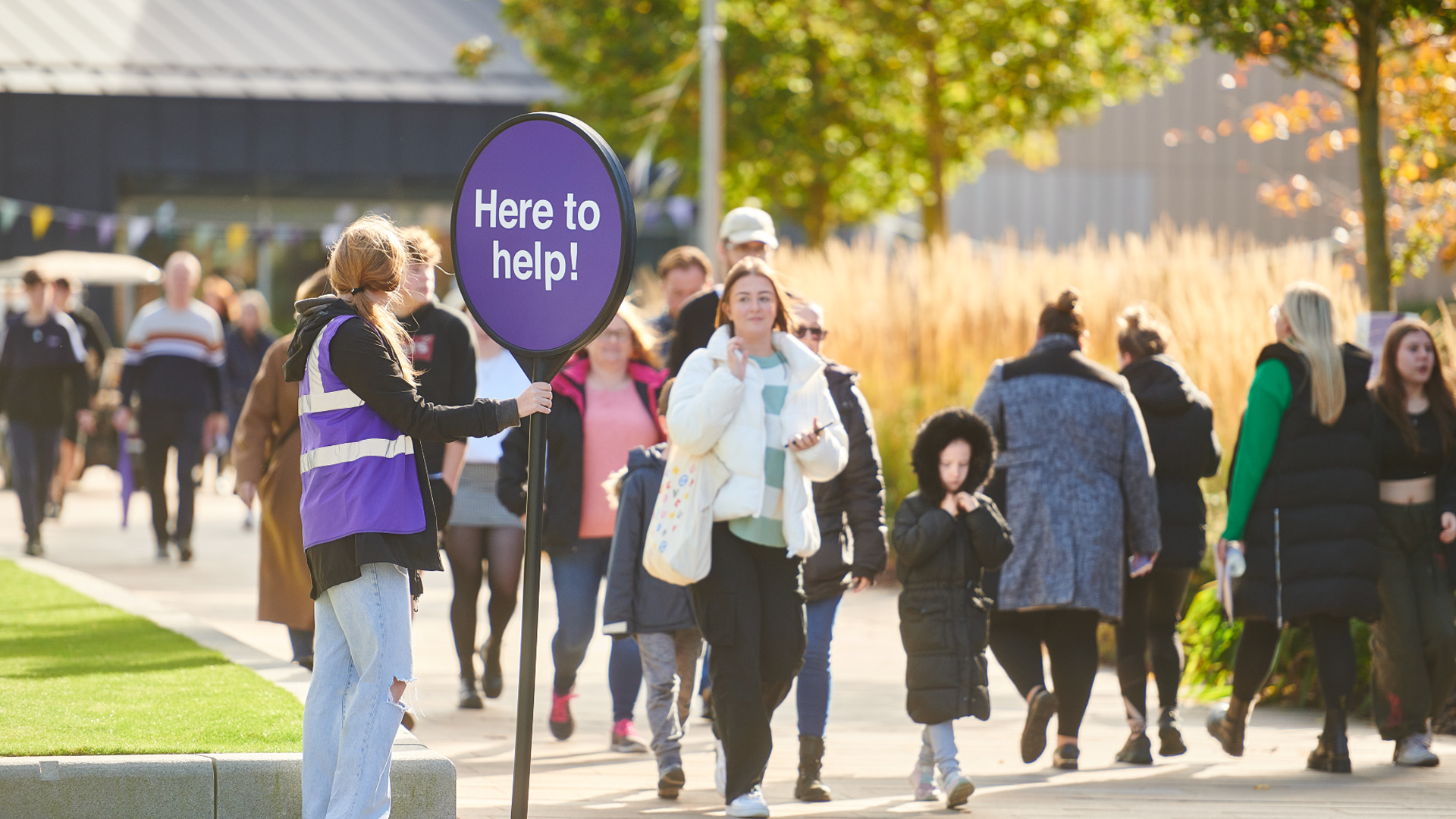
Facilities
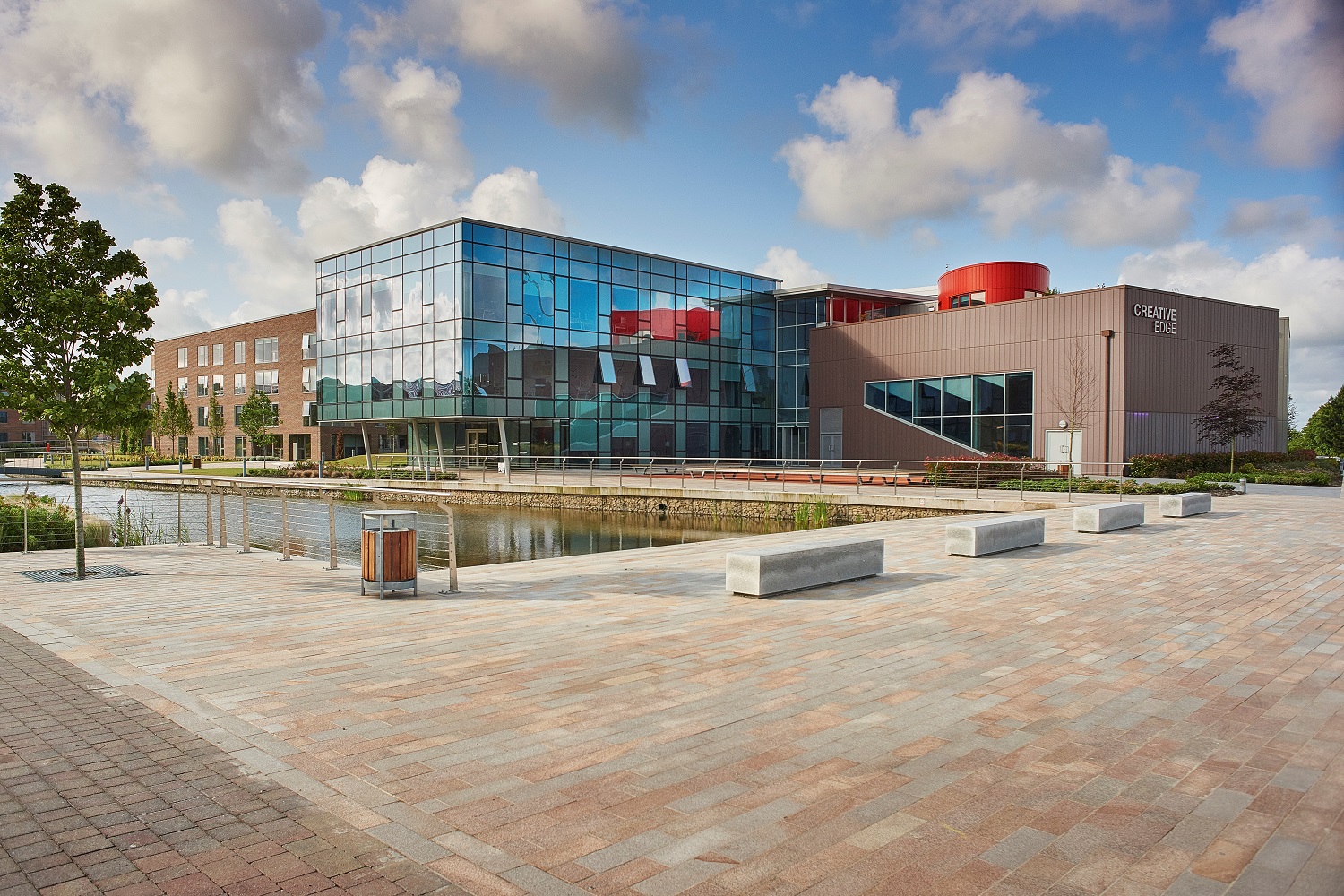 The Department of English and Creative Arts is based in Creative Edge, a state-of-the-art £17million building offering highly contemporary facilities.
The Department of English and Creative Arts is based in Creative Edge, a state-of-the-art £17million building offering highly contemporary facilities.
The £17 million Creative Edge building features a lecture theatre, seminar rooms, IT facilities and smaller tutorial spaces. It has everything you need to become a capable, versatile, creative writer and thinker. Creative Edge’s social learning spaces are ideal for passionate discussion with like-minded creatives.
You’ll develop the practical skills, analytical tools and confidence for wherever your creative flair and insight takes you.
Where you'll study
Creative Edge
Finance
Tuition fees
UK Full-Time
£9,250
a year
UK Part-Time
£77 per credit
for 360 credits
International
£16,500
a year
EU/EEA and Swiss students who have settled or pre-settled status under the EU Settlement Scheme, as well as Irish nationals, may be eligible for the UK tuition fee rate.
Financial support
Subject to eligibility, UK students joining this course can apply for a Tuition Fee Loan from the Government to cover the full cost of tuition fees. UK students enrolling on the course may also be eligible to apply for additional maintenance loan funding to help with living costs. Please view the relevant Money Matters guide for comprehensive information about the financial support available to eligible UK students, together with details of how to apply for potential funding.
EU/EEA and Swiss students who have settled or pre-settled status under the EU Settlement Scheme may be eligible to apply for financial support. Irish nationals can ordinarily apply to Student Universal Support Ireland (SUSI). If you are an EU student who does not have settled or pre-settled status, or are an international student from a non-EU country, please see our international student finance pages.
Your future career
Ever wondered: “What can I do with a degree in creative writing and English literature?” Our graduates now work in a range of areas from publishing, education, and the media to marketing and business. This includes roles such as:
- Communications Assistant
- Senior Production Editor
- Content Creator
- Marketing Strategist
- Whole School Literacy Coordinator
Careers and employability are integrated throughout the degree with modules focussed on developing employability skills. Industry contacts and practical experience are important, so we offer networks in areas like game design, publishing, festival and event organisation and museum curation.
Why not kick start a theatre career by entering the Dame Janet Suzman Playwriting award in your third year? Or build your CV and real world experience by hosting an in-house literary festival?
You can also choose a life in academia. Take a PGCE to go into teaching or pursue a Masters in creative writing.
Course changes
Every effort has been made to ensure the accuracy of this information, however our courses are subject to ongoing review and development. Changing circumstances may necessitate alteration to, or the cancellation of, courses.
Changes may be necessary to comply with the requirements of professional bodies, revisions to subject benchmarks statements, to keep courses updated and contemporary, or as a result of student feedback. We reserve the right to make variations if we consider such action to be necessary or in the best interests of students.
